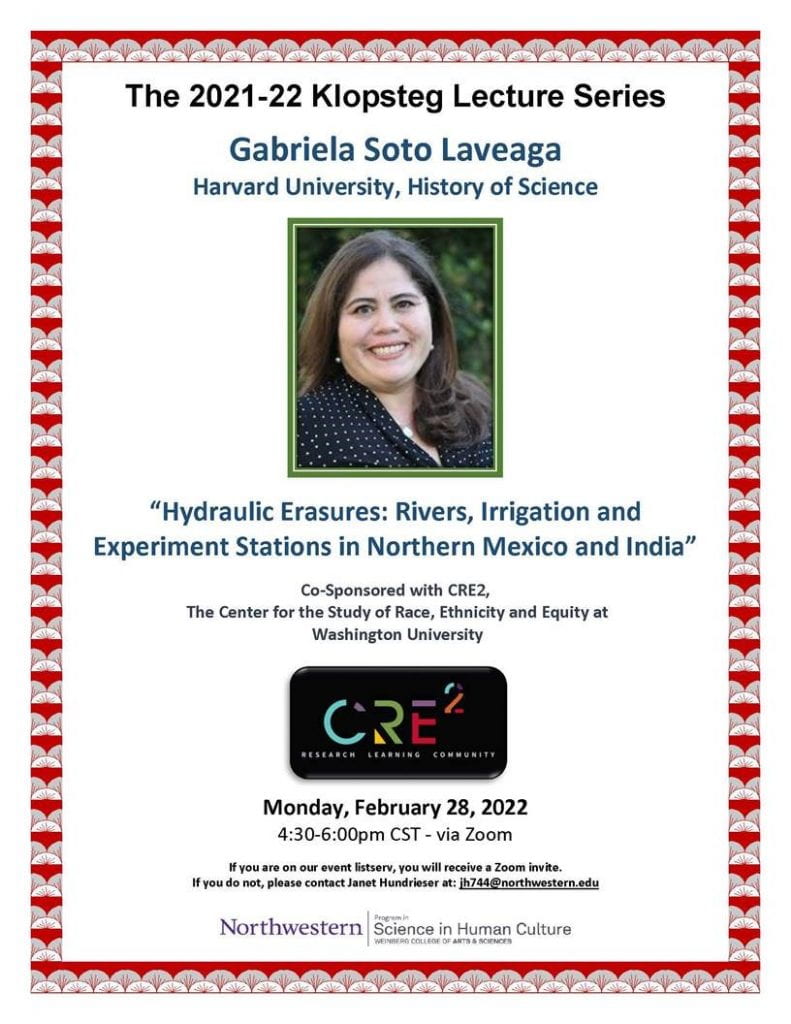This academic year, CRE2 is inaugurating a partnership with Northwestern University’s Program in Science in Human Culture (SHC) to co-sponsor a series of research exchanges, public panels, and scholarly presentations that focus on the intersections of race, science, and medicine.
Through this partnership, members of both institutions will have opportunities to participate in events in the series that explore questions surrounding the production of scientific knowledge across the Americas, including institutional barriers, “gatekeeping,” and the construction of expertise; genomics, genetics, and understandings of race; and the roles of science in society in the present and past. This event is part of the Klopsteg Lecture series at Northwestern University.
In the mid 1960s seeds from an experimental station in northern Mexico helped launch the Green Revolution. Use of these high-yielding seeds transformed farming from Latin America to South Asia. Their status as “miracle” seeds was challenged in a few years when excessive use of fertilizer and pesticides wreaked havoc on the environment and had lasting social impacts on farming communities across the globe. While many have written about the Green Revolution and its consequences, this talk seeks to understand how we construct historical narratives of such events. This talk, then, interrogates whose narratives are erased and which survive by examining the historical contexts of overshadowed histories of the so-called Green Revolution.
Gabriela Soto Laveaga is a Professor of the History of Science and Antonio Madero Professor for the Study of Mexico at Harvard University. Her current research interests interrogate knowledge production and circulation between Mexico and India; medical professionals and social movements; and science and development projects in the twentieth century. Her first book, Jungle Laboratories: Mexican Peasants, National Projects and the Making of the Pill, won the Robert K. Merton Best Book prize in Science, Knowledge, and Technology Studies from the American Sociological Association. Her second monograph, Sanitizing Rebellion: Physician Strikes, Public Health and Repression in Twentieth Century Mexico, examines the role of healthcare providers as both critical actors in the formation of modern states and as social agitators. Her latest book project seeks to re-narrate histories of twentieth century agriculture development aid from the point of view of India and Mexico. She has grants from the Ford, Mellon, Fulbright, DAAD, and Gerda Henkel Foundations. In 2019, she received the Everett Mendelsohn Excellence In Mentoring Award from Harvard University.
Join Zoom Meeting
Meeting ID: 943 1105 4968
